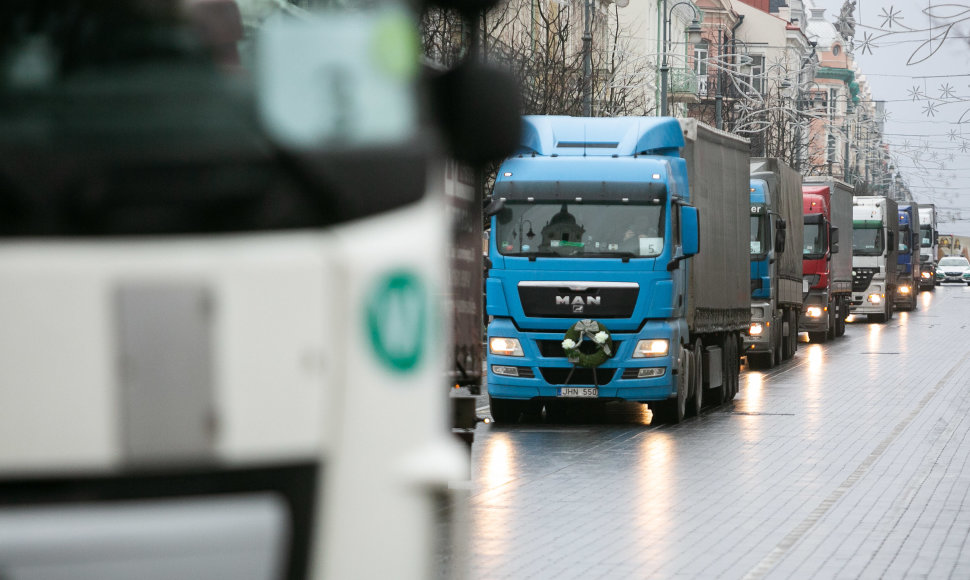The large Lithuanian carrier associations – the Lithuanian national road carrier association Linava and the International Transport and Logistics Alliance state in a letter to the Commission that to avoid the spread of the COVID-19 coronavirus, it is necessary to reduce social connections in the international transport sector to the utmost possible. Drivers should avoid social contacts, not disembark at goods loading locations, work from their cabins.
Also, for the safety of the drivers themselves, while the coronavirus pandemic crisis is being contained in Europe, a request was made to allow maintaining previous work and rest time regulation, allow drivers to remain in their cabins during resting periods and temporarily suspend the requirement for them to spend nights in hotels.
Lithuanian carriers note that certain European Union member states have already made respective decisions at the national level. However, such measures to manage the crisis will only be fruitful if they receive coordinated application across the EU.
The letter initiators also propose to simplify driver home return (repatriation) and back to work procedures, including third-country drivers. According to the carriers, driver rotation is performed in most cases by using other transport vehicles and not trucks; thus, it is crucial to ensure their capacity to travel on the green corridors.
This week, the EC announced practical recommendations, which seek to ensure sustained goods movement following the border closures occurring due to the coronavirus pandemic.
The Commission asks EU member states to specify all internal border crossing points belonging to the Trans-European Transport Network (TEN-T), where green corridors can cross borders.
“Crossing the border through green corridors should be possible for all cargo vehicles, regardless of the goods being transported. Border crossing time, including checks and health tests, should not exceed 15 minutes,” the EC press release states.
The EC also recommends for vehicles crossing by way of green corridors to only have the most crucial simplified procedures applied. Checks and tests should be performed without drivers leaving their vehicles and drivers themselves should alone face minimal testing.
The Commission recommends all member states to take actions, which would ensure the free movement of all staff participating in international carrier operations, regardless of their vehicle type.
Lithuanian carriers receive the EC’s recommendations positively and note that this is a significant political step in seeking to ensure effective border control and the availability of essential goods. However, according to them, due to continually changing national restrictions and prohibitions, goods transport is becoming increasingly complicated.












